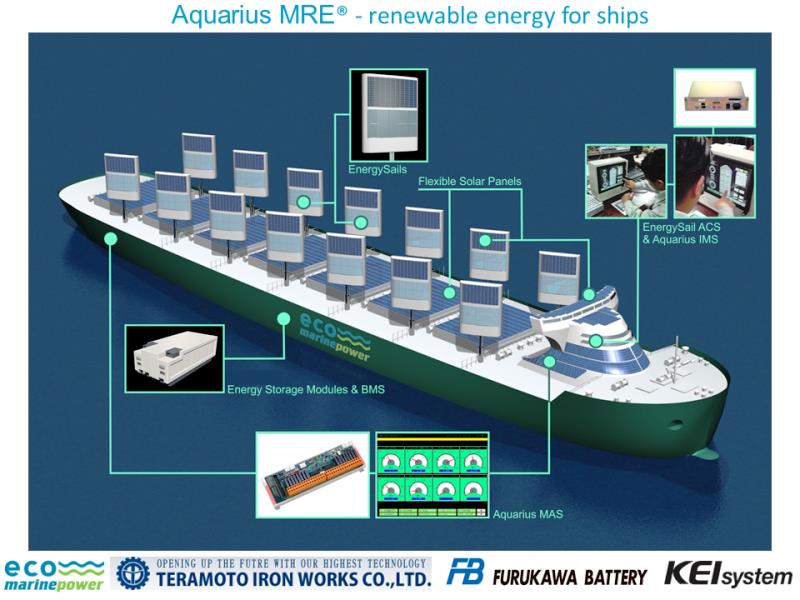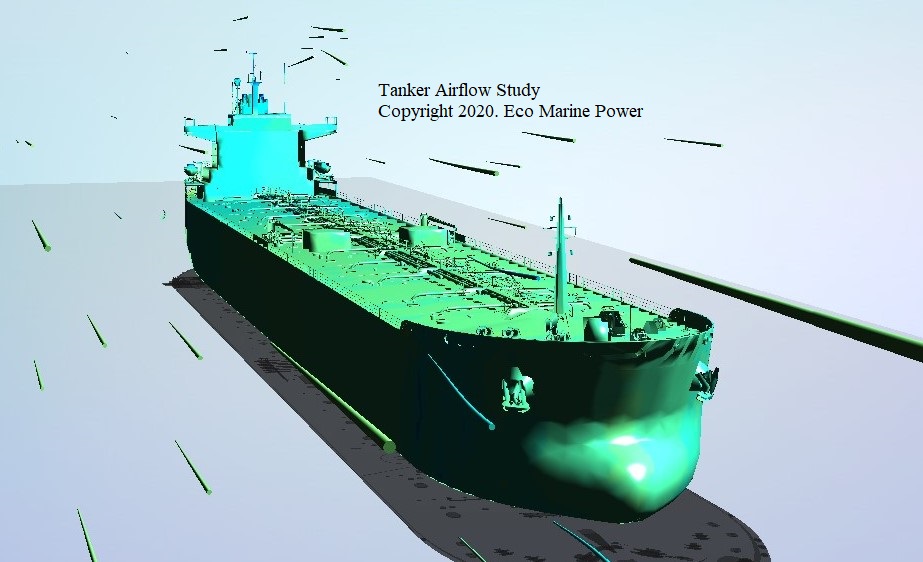Zero-emission power and propulsion system for ships being prepared for installation.
In another major step towards commercializing its Aquarius Marine Renewable Energy (Aquarius MRE®) solution, Eco Marine Power (EMP) announced today that it had commenced a feasibility study regarding the installation of the solution onto a LR2 Tanker. The study is being undertaken in co-operation with the ship owner and will investigate how various technologies can reduce fuel consumption and emissions on-board the vessel.

The scope of the feasibility study includes; investigating installation locations for marine-grade solar panel and frames, an energy-storage system, an automated alarm and monitoring system & the fitting of EnergySail’s onto the ship. Also involved in the study at this stage are Teramoto Iron Works Co. Ltd., The Furukawa Battery Company, KEI System Ltd., and Fuji Trading Co., Ltd.
The LR2 Tanker selected for the study is approximately 240 metres in length and is the largest ship of this type that EMP has investigated the detailed installation of its complete Aquarius MRE solution. Aquarius MRE is a zero emissions power and propulsion system that incorporates an array of automated rigid sails, marine-grade solar panels, energy storage modules, charging equipment and computer systems. Aquarius MRE enables ships to tap into renewable energy by harnessing the power provided by the wind and sun. The array of rigid sails are automatically positioned by a computer system to best suit the prevailing weather conditions and can be lowered and stored when not in use or in bad weather.
The rigid sails are based on EMP's patented EnergySail® technology and these renewable energy devices can even be used when a ship is at anchor or in harbour. Each EnergySail can be configured with a mix of sensors, photovoltaic panels or other power generating devices.

Also included in the feasibility study will be modelling of the expected fuel consumption and emission reductions that could be achieved via the use of Aquarius MRE, plus Computational Fluid Dynamic (CFD) modelling of airflow around the ship. EMP is also investigating which marine-grade solar panels would be the most suitable for the project and also the feasibility of adding further equipment including low power LED lighting and other power saving devices.
Preparation for the feasibility study commenced in 2019 when a vessel survey was conducted and it is expected that the feasibility study phase will be completed in early 2021. Some equipment for an initial system trial may be installed on the ship within 2020.
Source: Eco Marine